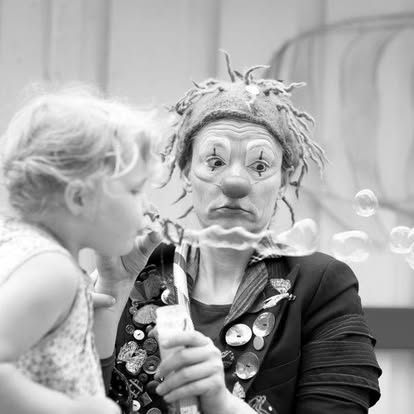Childrens perspective En/No

EN
Children's perspective, introduction to this blogg.
Children have a unique ability to play and be creative. Their imaginative is a key value in forming their identity and should be safeguarded under all circumstances. Children´s identity should never be synonym with diagnosis, condition or medical treatment. Everything we encounter on our journey as humans, we encounter as children, youth and adults. Children's imagination is a valuable resource in meeting, exploring and understanding the world from their own perspective. When faced with life, death, illness and crises, children's imagination is an underestimated tool.
Adults have taken the patent on the truth in most domains in society, but in children's perspective it is the children who are the specialists and the adults who must free themselves from preconceived structures, readymade answers and solutions. In healthcare and school systems, we have acted on the hierarchical structure where adults know and children should learn from them. In a children's perspective it is the other way around, the adult must tune in, listen, improvise, learn, sense and be in a equal interaction together with the child.
To understand childrens power, the imagination is a important key. Imagination is influenced by the environment, society and culture, but it also stands on its own, using the entire human toolbox. Humor, poetry, creativity, impulsiveness, musicality, emotions, thoughts, senses are some of the elements contributing to imagination. When we acknowledge the resources of a child, we can strengthen their identity by highlighting all the competence they already possess.
The value of health care clowning in pediatric palliative care
Over the past ten years, the health care system has aimed to change the reputation of pediatric palliative care. From being a taboo, speaking about children`s death, it is now filled with a holistic thought of how to facilitate the best life possible, in a longer perspective. The World Health Organization (WHO) frame it like this: Palliative care for children is the active total care of the child's body, mind, and spirit, and also involves giving support to the family. But in order to interact with children and youth, it also requires a language adapted to them in a different way than the medical and educational.
Arts such as clowning, theater, puppet theater, music and literature have always asked questions, wondered about alleged truths and seen the world from new angles. Over thousands of years, art has developed a artistic language based on playing, improvising, dreaming, fantasizing and being in the present. Art should not be considered as something extra, but as a important contributer in pediatric palliative care. The artistic languages creates opportunities for children and youth to express themselves and experience mastery in facing the unknown.
All children should have the opportunity to play, even when their bodies are changing and we have to find new ways to be together, anything is possible! As long as there is breath, we can create movement and travel in our imagination.
Children are synonymous with our future
We live in a demanding time where climate challenges, international wars and general time pressure are contributing to increasing stress levels for children and young people. A conscious integration of art subjects, in both school and the health care system, might strengthen children and young people's identity, willpower and help to ventilate and regulate traumas.
Children cannot be armed with weapons, but they can be armed with to be the best version of themselves and beeing part of a society that see them as a resource. Children are born with a fantastic toolbox to integrate with others. Without adult intervention, children are able to play together, even without a common language or established culture. They meet in the improvisation that are abel to cross all boundaries and borders between us. Children use their innate imagination and reset themselves time and time again. Such resetting and the ability to meet others without judging is a skill that the adult world should be inspired by.
The time has come to talk about children's perspectives in the face of both life and death, peace and war, illness and everyday life. Adults have a lot to learn and a lot to take care of; without the children's perspective, hope and our ability to coexist may disappear.
Author: Elisabeth Helland Larsen is working and collaborating with Sykehusklovnene and work independently as a artist/writer.
Illustration: Eldbjørg Ribe fra boken "Klovn!" Cappelen Damm 2014.
WHO int, about Palliative care for children.
Photo: Kristin Aafløy Opdan.